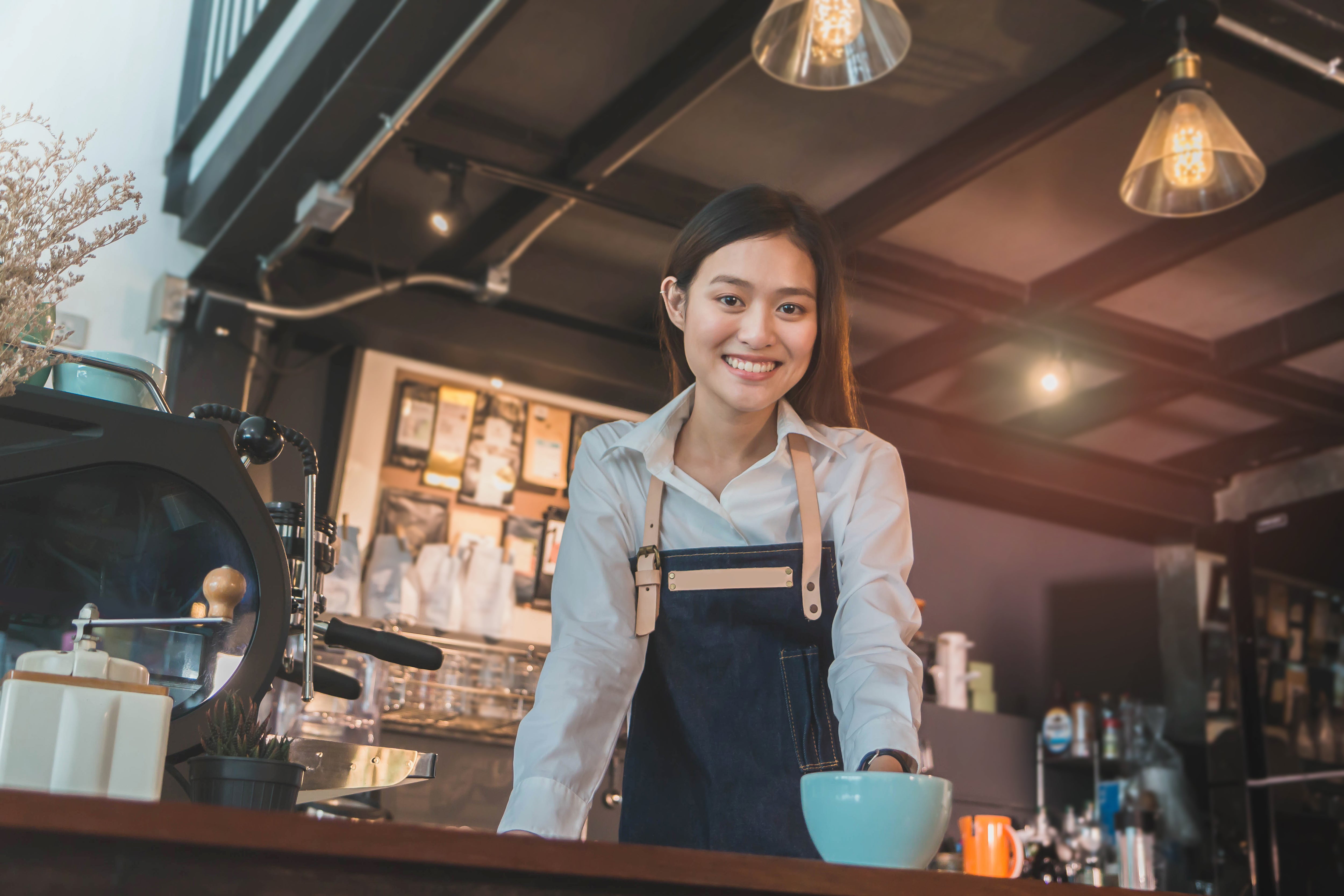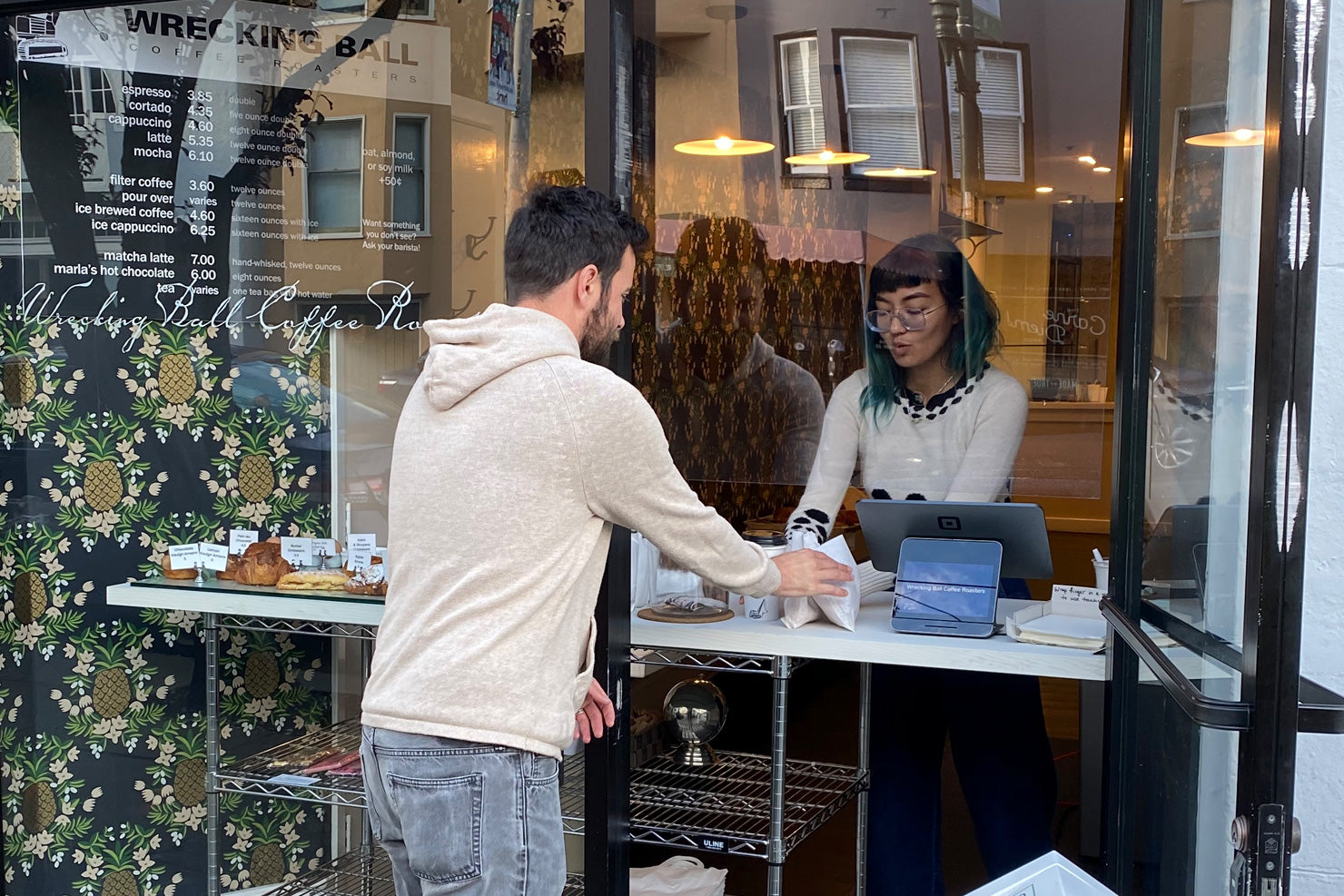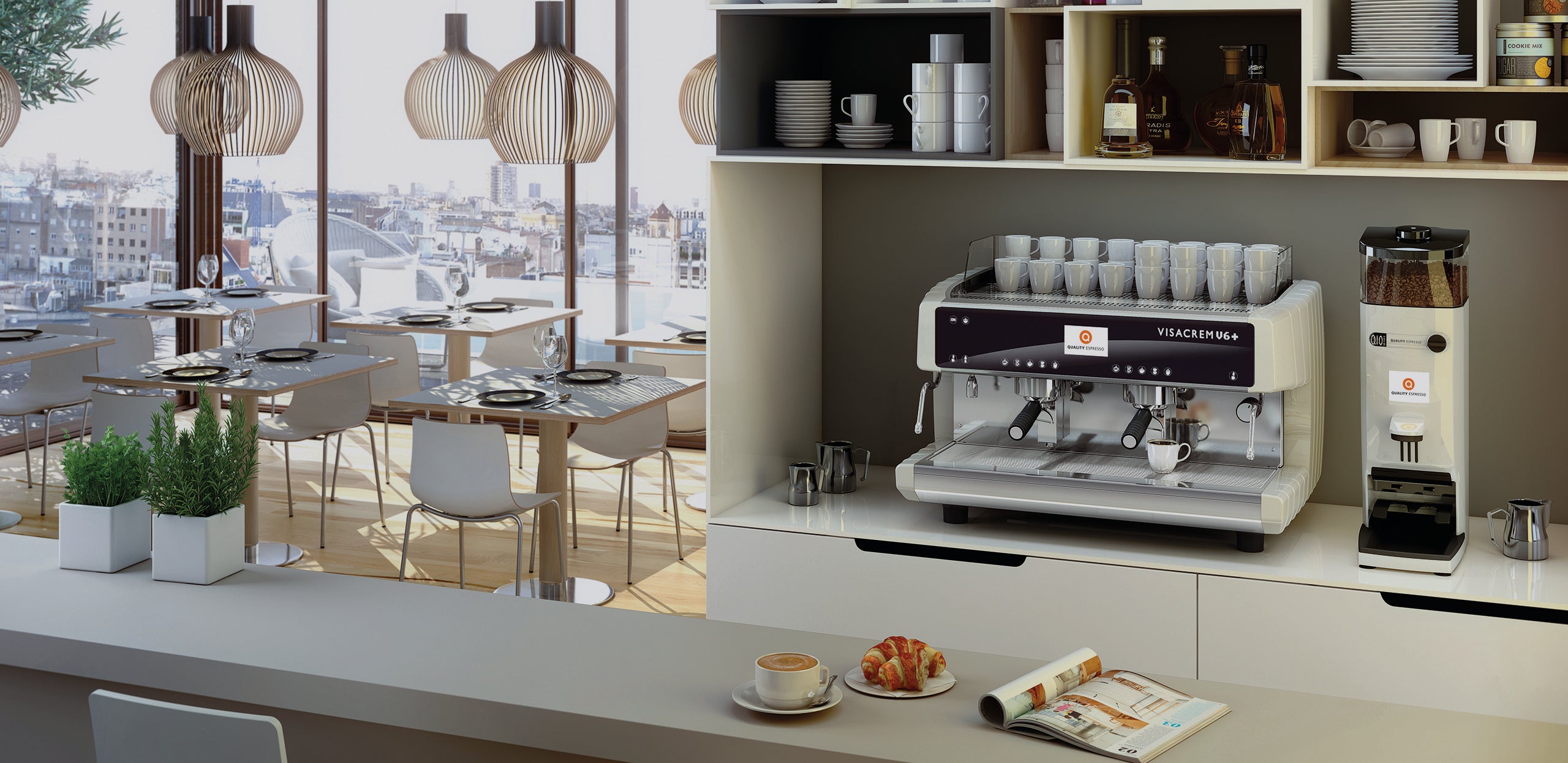
What is the best coffee machine for a new café?
Choosing your espresso machine
Starting a new coffee business is an exciting and busy time, there's lots of decisions to make and one of the most important is your choice of espresso machine. It's well worth taking the time to think through all the options and how you envisage your coffee service will work. This goes beyond simply deciding which style of machine to choose, you must also think about menu choices, service and support and staff training.
Here's a few points to consider:
Capsules or coffee beans
You may already have a particular coffee blend in mind but it's worth considering whether you would like to use coffee beans or capsules, or a mixture of both, as this will influence your choice of machine.
Whereas coffee capsules are a luxury item for the at home market, for the foodservice market they represent an opportunity to increase sales by offering a wider range of coffee blends. Consumers are becoming ever more accustomed to quality coffee and this means being able to offer a blend to cut through milk in cappuccinos and lattes as well as a blend that produces a robust espresso or americano. Coffee capsules allow you to offer a wider choice of coffee blends, as well as decaffeinated options, more easily.
Coffee capsules are compatible with most traditional espresso machines, all the user has to do is insert a capsule converter basket into the espresso machine handle, insert a capsule and then use the handle in the usual way. Capsules perform best on machines with a 24v vibration pump so if you know you only want to use coffee capsules this type of machine would be best, if you want to switch between capsules and beans a rotary pump espresso machine would be the best choice.
Hot water output
Although hot water is available from espresso machines, if you plan to use lots of it for pots or large cups of tea you will impair the performance of most espresso machines during busy times. This is because a coffee machine needs to stay at optimum temperature to ensure the group head and water temperature at point of infusion stays at 92-93oC. A single serving of coffee is made from only around one fluid ounce of water, allowing the machine to remain stable during slow and busy times. Taking out lots of hot water for tea however, means replacing it with cooler water. This has two main effects:
- espresso coffee being under extracted (weak and poor flavour)
- reduced steam availability for milk
Therefore it is advisable to consider a separate water boiler if tea or large volumes of hot water will be required.
Automatic or semi-automatic
Semi-automatic traditional espresso machines are often preferred by experienced baristas who like to have complete control over every coffee they create. In simple terms, to make a coffee you turn the group switch on until the desired quantity of espresso has been expressed, then you turn the switch off.
With an automatic machine, there are usually five buttons which electronically control the amount of water pushed through the coffee.
These are:
- Single espresso
- Single ristretto
- Double espresso
- Double ristretto
- Continuous coffee (similar in operation to the semi-automatic switch)
When using an automatic coffee machine, if making a single shot of espresso for cappuccino for example, simply press the single espresso button and the electronics do the rest, leaving the barista to continue with preparing the milk.
In today’s fast service environment, automatic espresso machines offer a quick, efficient and accurate production of coffee.
Space
Consider where you wish to locate your machine. We would recommend where possible positioning the machine to face your customers as they approach the buying position as this helps sell coffee as well as promote the high standard of everything else you offer.
Bare in mind that it may be worth altering the space you have to ensure the machine you decide on is the best to suit your business. There are commercial espresso machines on the market which are ergonomically designed to fit into tight work spaces, so this could be a good option if you are short on space.
Staff training
Will you be training staff to produce barista quality coffee or would you prefer something more automated? This is an important consideration and there are options available for both choices. You can buy the best espresso machine on the market but if it's not used and maintained correctly you will have the worst coffee.
If you would like to train your staff to create barista standard coffee then a traditional espresso machine is best for you. It's important your staff are properly trained to use it and get the best espresso from it. Make sure you choose a supplier that provides barista training as well as installation, and refresher training is always a good idea as well.
If you would prefer something more automated then a bean to cup machine is best for you. This is where the grinding, brewing and milk preparation all takes place within the machine, so all your staff have to do is press a button. There are some excellent models of bean to cup machine on the market and many can make a wide selection of different drinks, using fresh milk and coffee beans.
Service and support
Your coffee machine is the lifeblood of your coffee business, so it's vitally important that it's not out of action for long periods of time. This means making sure it is regularly serviced (this is also a legal requirement) and ensuring your machine comes with a comprehensive support package. We recommend you find a supplier that has their own service team and specialise in your brand of machine; some companies use external service teams which may mean waiting longer for your machine to be repaired or serviced as they do not stock and carry all the spare parts required for your espresso machine brand.
Cash flow
Most start-up businesses need a healthy cash flow to get things off the ground so it could be worth considering other options than buying your machine outright. There are a number of different options on the market such as lease-purchase, where you pay instalments for the machine over a number or years and at the end of the agreement you own the machine; rental, where you never own the machine and pay for use of it and free-on-loan, where you buy the coffee and can use the machine for free (free-on-loan is similar to renting in that you don't ever own the machine).
We hope these pointers have been useful and wish you the best of luck with your new coffee business!


